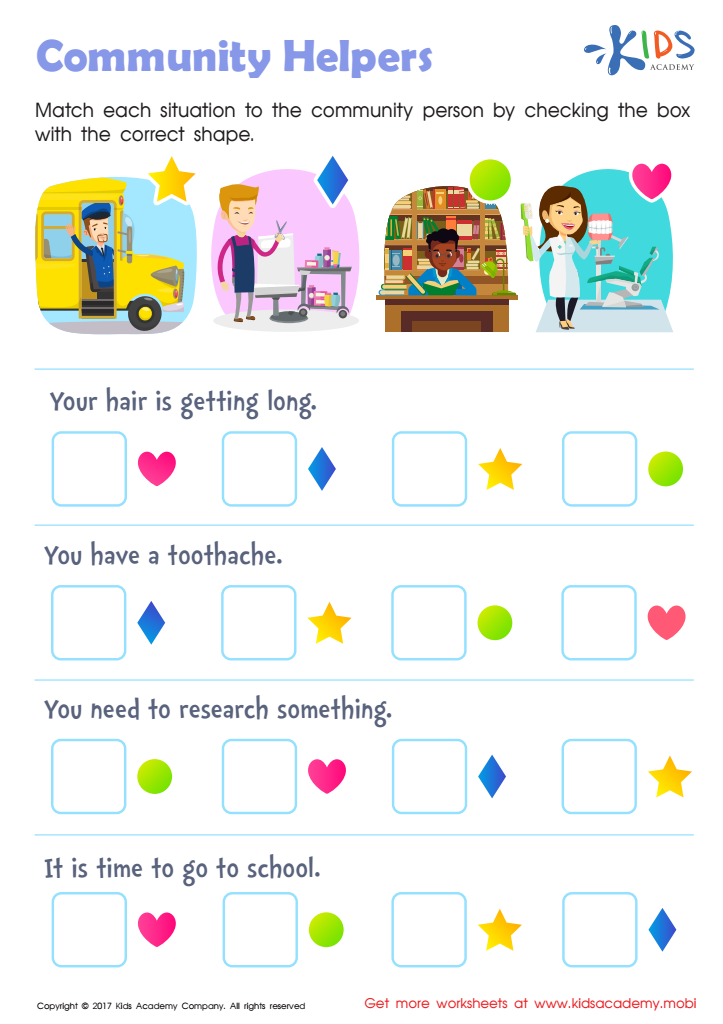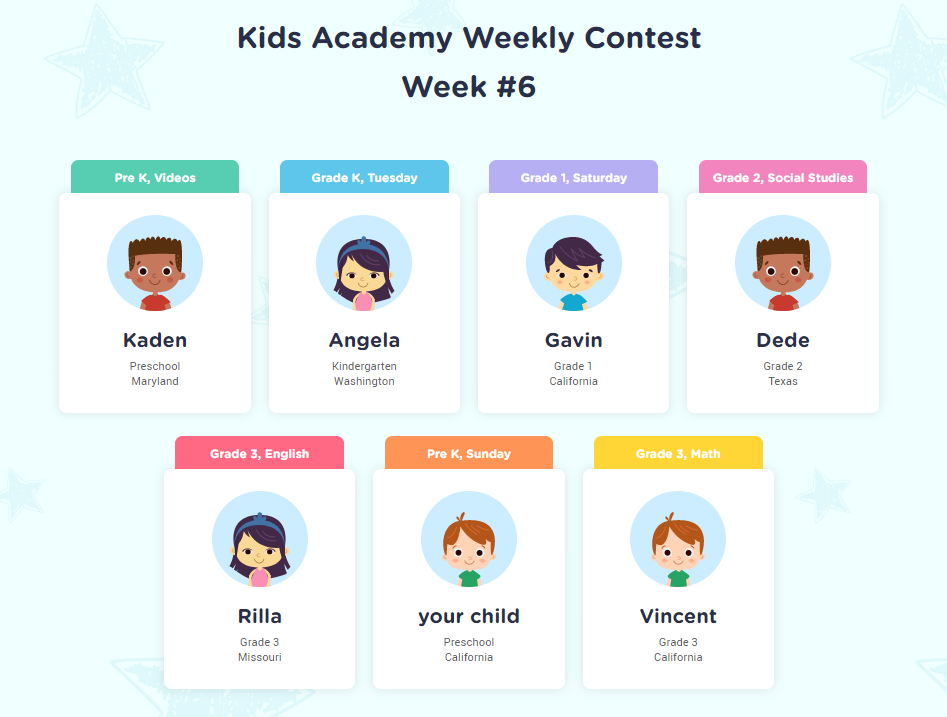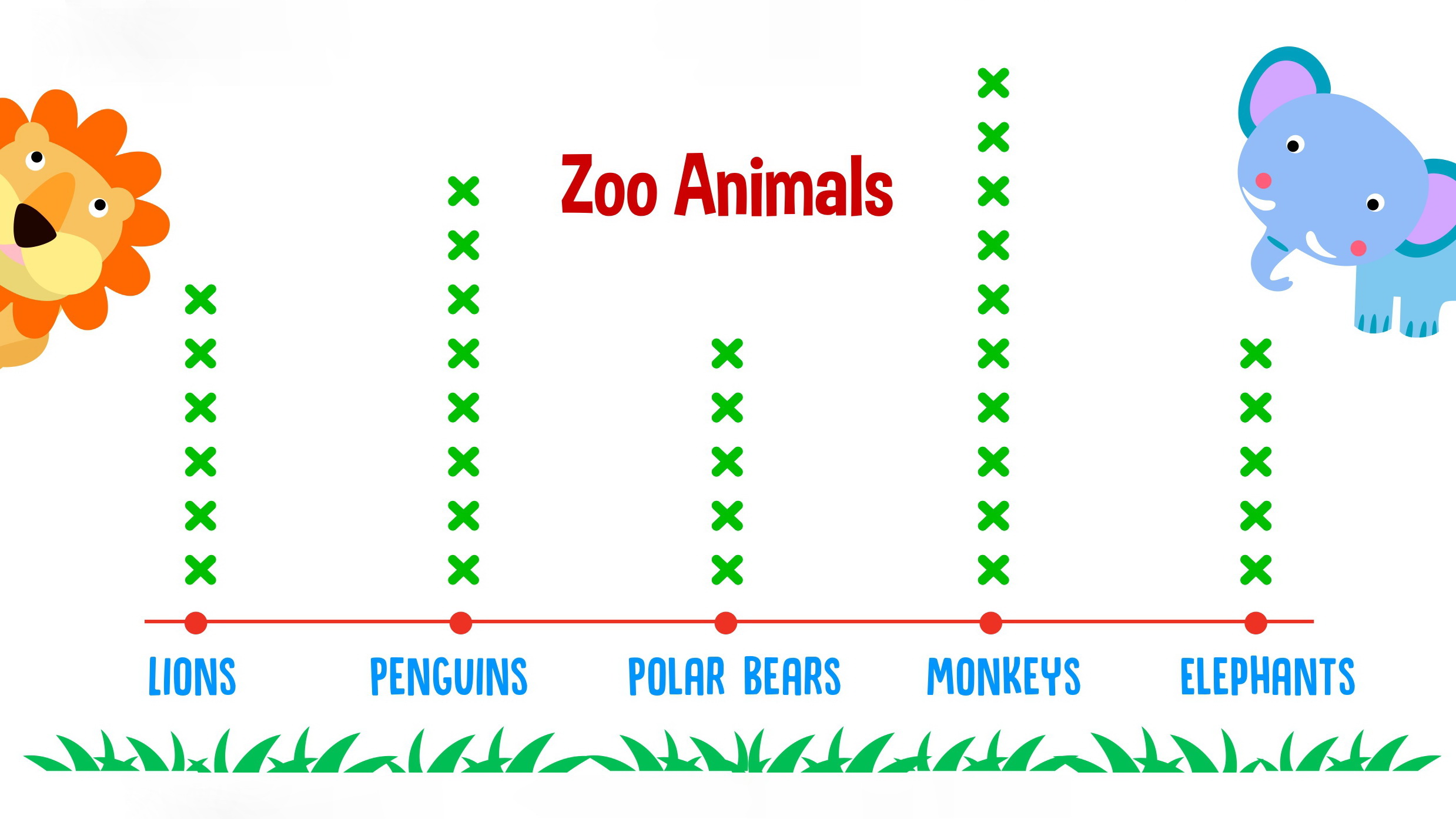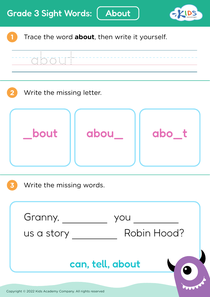3.9 Economic Systems worksheets With Answers for Grade 3
7 filtered results
-
From - To
Explore our engaging "3.9 Economic Systems Worksheets with Answers" tailored for Grade 3 students. These worksheets are designed to introduce young learners to fundamental concepts of economic systems, including the roles of producers, consumers, and various economic resources. Each worksheet is crafted to enhance critical thinking skills while providing clear explanations and activities that make learning fun and accessible. With answer keys included, teachers and parents can easily assess student understanding and support their educational journey. Perfect as classroom resources or homework assignments, these worksheets will help students grasp the basics of economics in an interactive and enjoyable way!
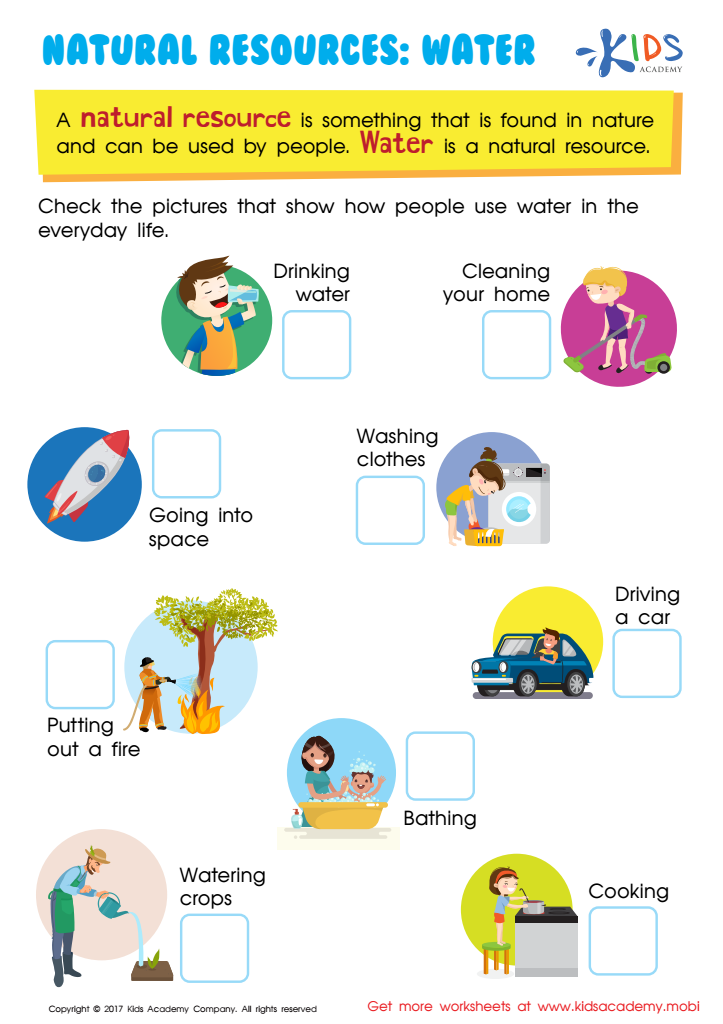

Natural Resources: Water Worksheet
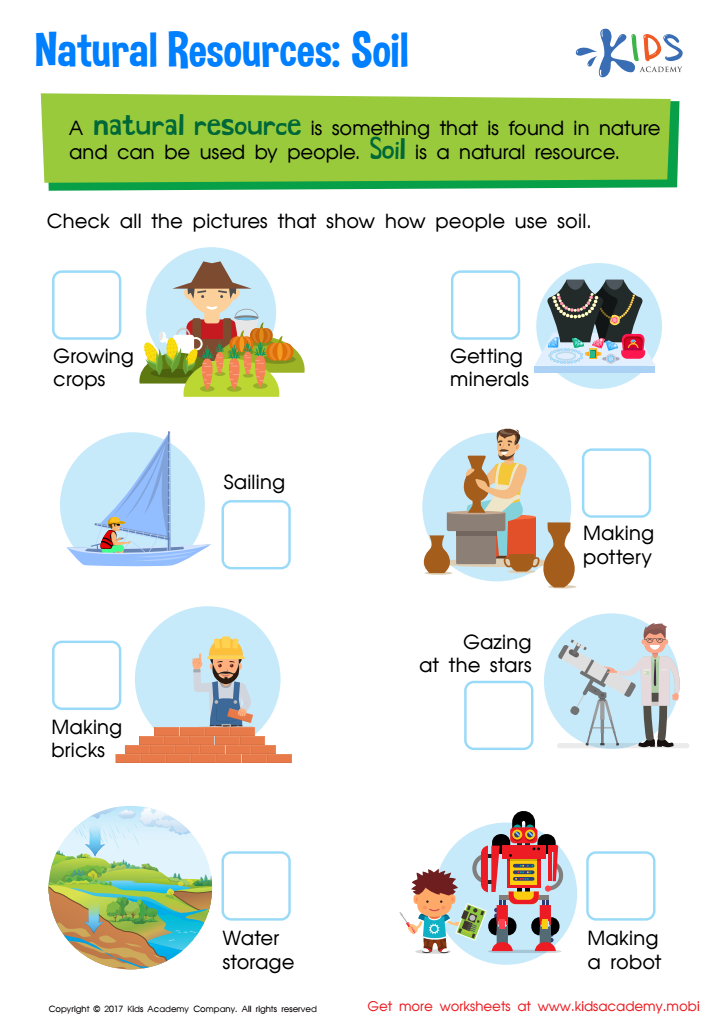

Natural Resources: Soil Worksheet
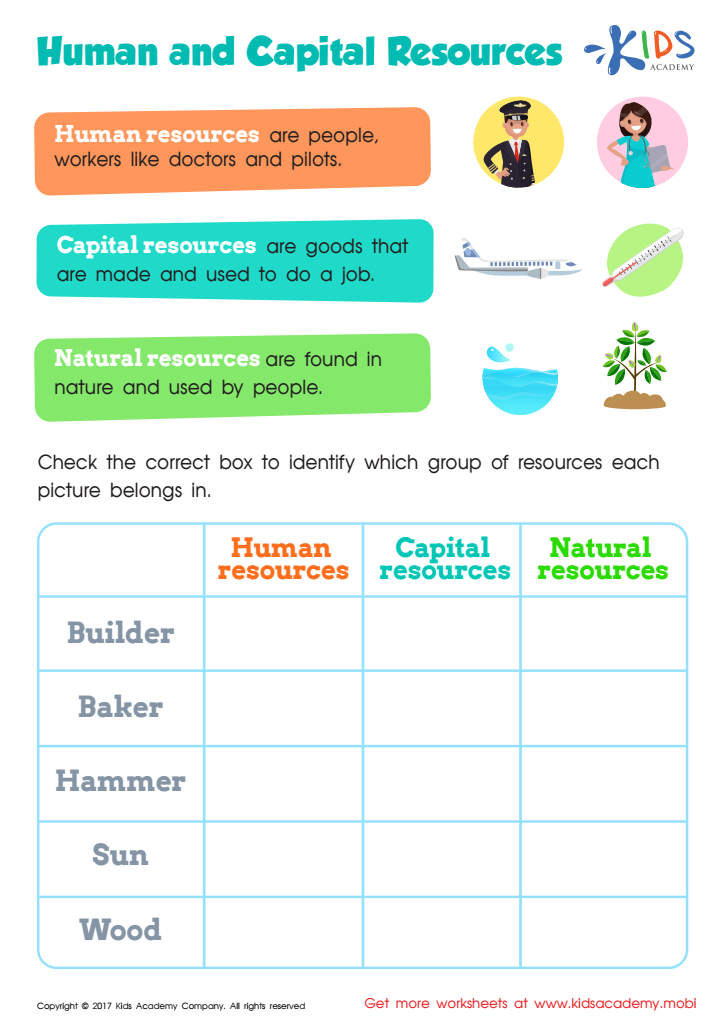

Human and Capital Resources Worksheet
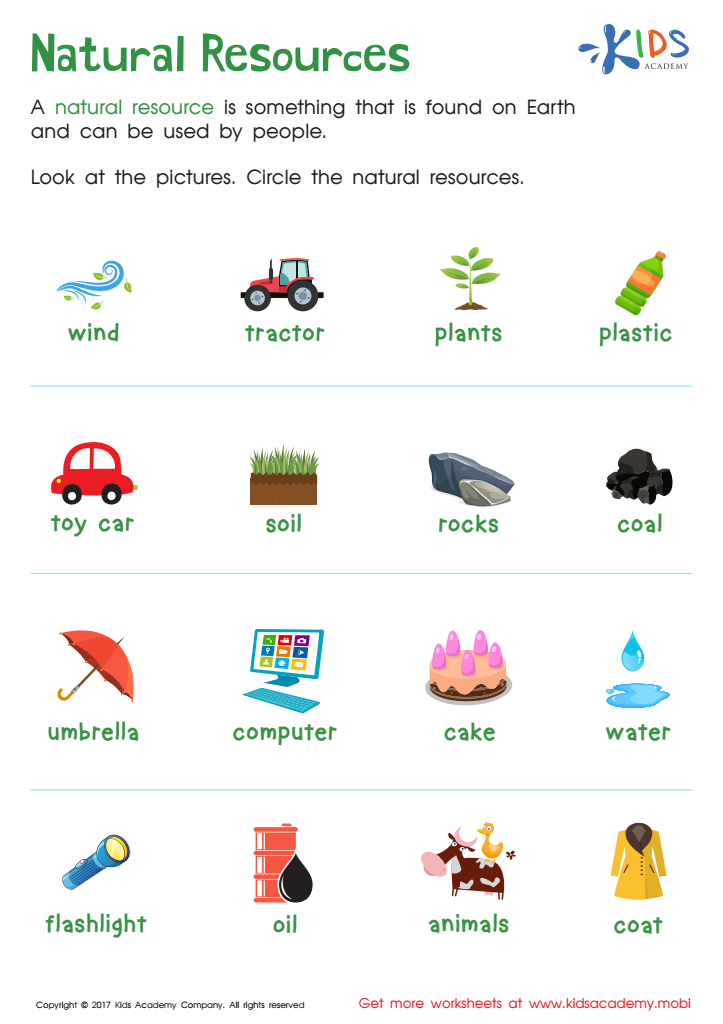

Natural Resources Worksheet
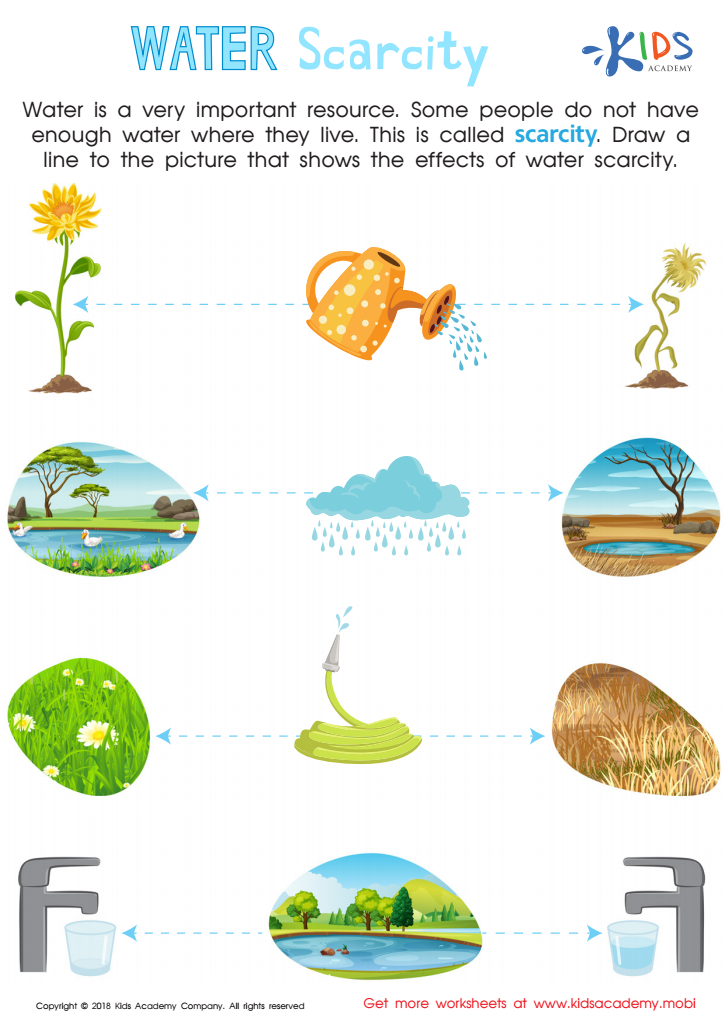

Water Scarcity Worksheet
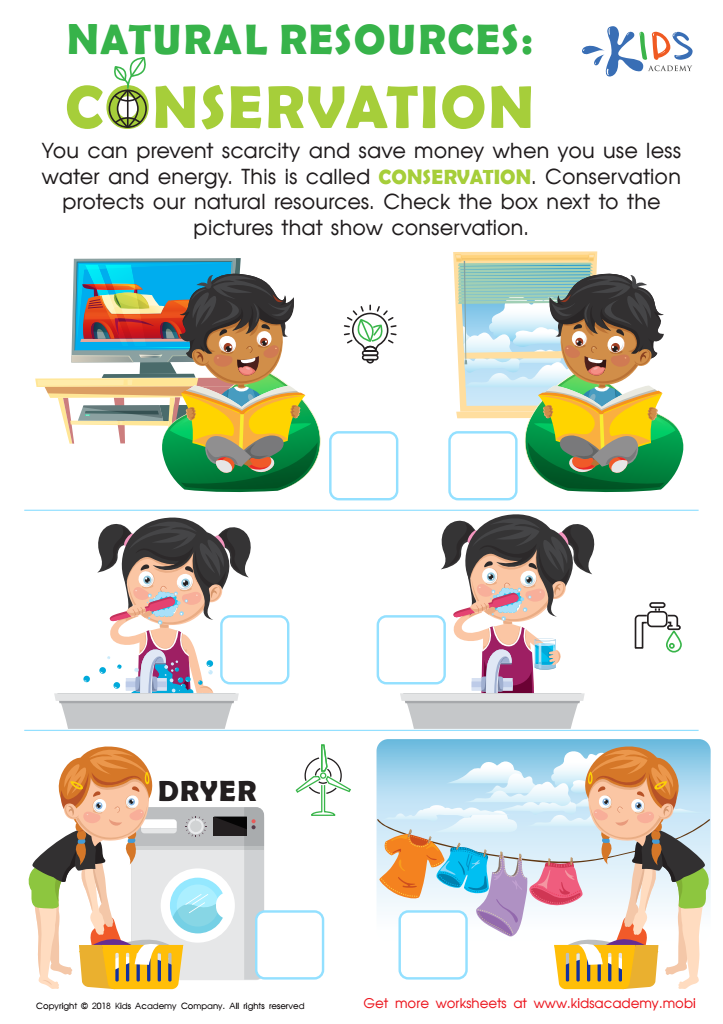

Natural Resources: Conservation Worksheet
Understanding economic systems is crucial for both parents and teachers, especially for third-grade students, as it helps develop critical life skills and awareness. Economic systems include how goods and services are produced, distributed, and consumed, which affects daily life decisions and community interactions. By learning about these systems, children can grasp basic concepts like needs versus wants, the importance of money, and the role of jobs in society.
Parents should care about this topic because a strong understanding of economics can empower children to make informed choices, such as saving, spending wisely, and appreciating the value of work. This knowledge can lead to responsible citizenship and foster the development of essential financial literacy skills.
Teachers should prioritize this topic in their curriculum to cultivate curiosity and analytical thinking in students. Engaging in discussions about how businesses operate, money management, and community resources encourages students to think critically about their role in society. Moreover, lessons on economic systems can support interdisciplinary learning—integrating math, social studies, and even art—making education more cohesive and practical for students.
In summary, understanding economic systems lays a solid foundation for responsible decision-making, community involvement, and lifelong learning.
 Assign to My Students
Assign to My Students
